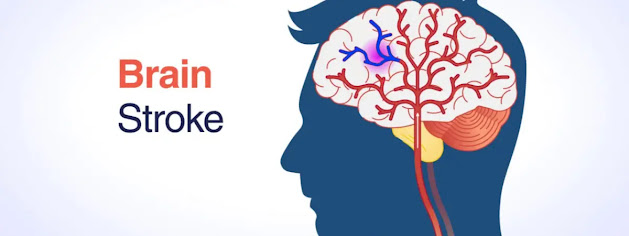Deciphering Brain Strokes: Unveiling Origins, Signs, and Solutions
A brain stroke, also known as a cerebrovascular accident (CVA), is a medical emergency that occurs when blood flow to the brain is disrupted, leading to brain cell damage or death. Prompt recognition and treatment are crucial for minimizing long-term disability and improving outcomes. Let's delve into the causes, symptoms, and treatment options for brain strokes, and how seeking expert care from Dr. Venkata Harin Reddy, the best neuro physician in Miyapur, can make a difference.
Understanding Brain Stroke: A brain stroke can occur due to two primary mechanisms:
- Ischemic Stroke: This type of stroke occurs when a blood vessel supplying the brain is blocked by a blood clot or plaque buildup, resulting in decreased blood flow to the affected area.
- Hemorrhagic Stroke: A hemorrhagic stroke occurs when a weakened blood vessel in the brain ruptures, causing bleeding into the surrounding tissue and disrupting normal brain function.
Causes and Risk Factors: Several factors increase the risk of experiencing a brain stroke, including:
- High blood pressure (hypertension)
- Diabetes
- High cholesterol levels
- Smoking
- Obesity
- Physical inactivity
- Family history of stroke
- Age (risk increases with age)
- Previous history of stroke or transient ischemic attack (TIA)
Symptoms of Brain Stroke: The symptoms of a brain stroke can vary depending on the type and location of the stroke but commonly include:
- Sudden weakness or numbness on one side of the body
- Difficulty speaking or understanding speech
- Confusion or difficulty with comprehension
- Vision changes, such as blurred or double vision
- Severe headache with no known cause
- Loss of balance or coordination
- Sudden onset of dizziness or vertigo
Treatment Options for Brain Stroke: Timely intervention is critical for managing brain strokes and minimizing damage. Treatment options may include:
- Thrombolytic Therapy: In the case of an ischemic stroke, thrombolytic medications such as tissue plasminogen activator (tPA) may be administered to dissolve blood clots and restore blood flow to the brain.
- Mechanical Thrombectomy: This procedure involves using a catheter-based device to physically remove the clot from the blocked blood vessel, restoring blood flow.
- Surgical Interventions: In cases of hemorrhagic stroke, surgical procedures may be necessary to repair or remove the ruptured blood vessel and relieve pressure on the brain.
- Rehabilitation: Following a brain stroke, rehabilitation therapy, including physical therapy, occupational therapy, and speech therapy, can help individuals regain lost function and improve overall quality of life.
If you or someone you know is experiencing symptoms of a brain stroke, seek immediate medical attention. For expert brain stroke treatment in Miyapur, trust Dr. Venkata Harin Reddy, the best neuro physician in Miyapur. With his specialized expertise and compassionate care, Dr. Venkata Harin Reddy offers comprehensive evaluation and personalized treatment plans to optimize outcomes for individuals affected by brain strokes. Contact us today to schedule a consultation and take the first step towards recovery and restoration of brain health.
Time is of the essence when it comes to treating brain strokes. Don't delay seeking medical care if you suspect a stroke. With timely intervention and expert guidance from Dr. Venkata Harin Reddy, you can maximize your chances of recovery and regain control of your health and well-being.




Comments
Post a Comment